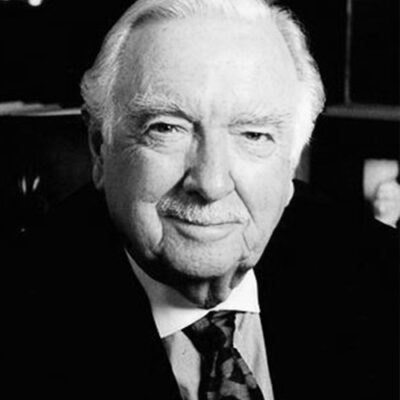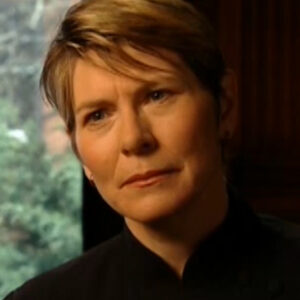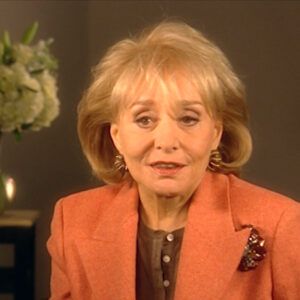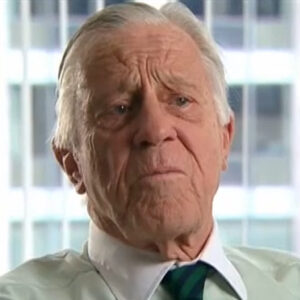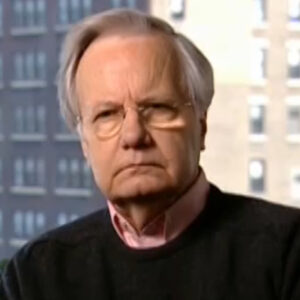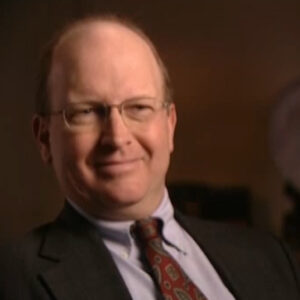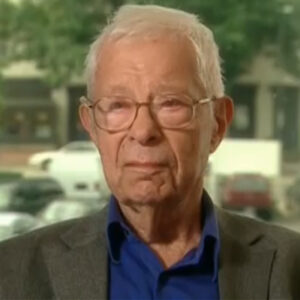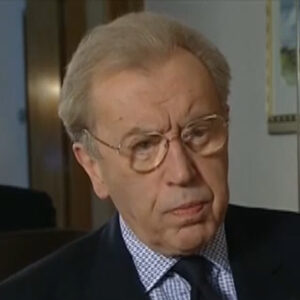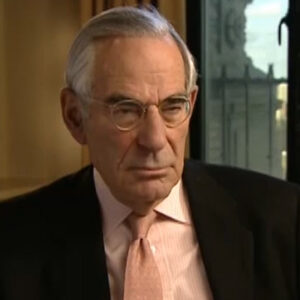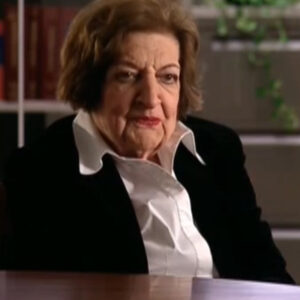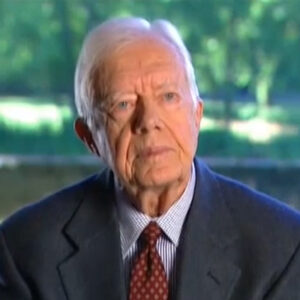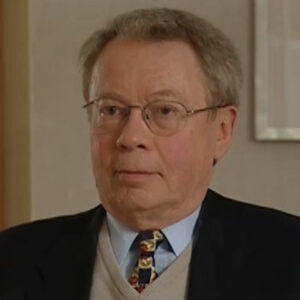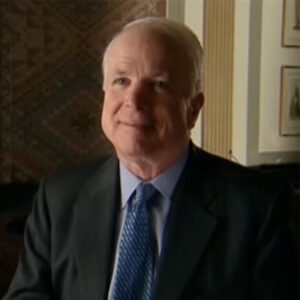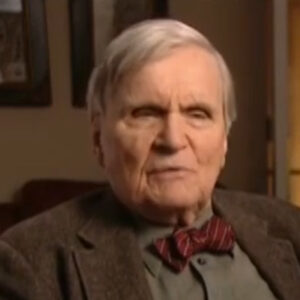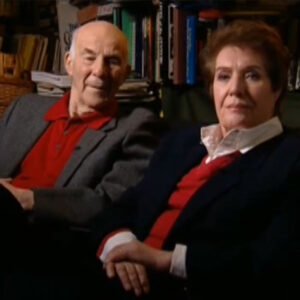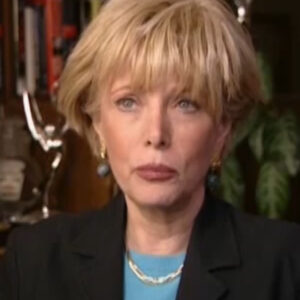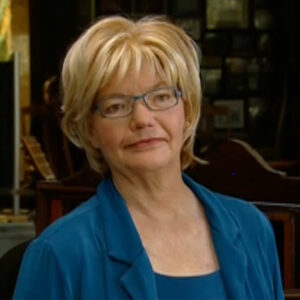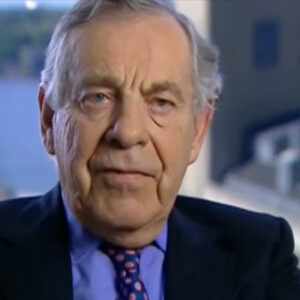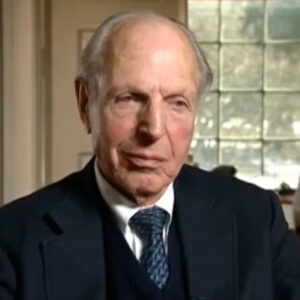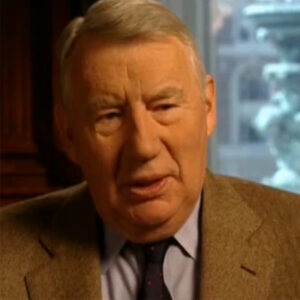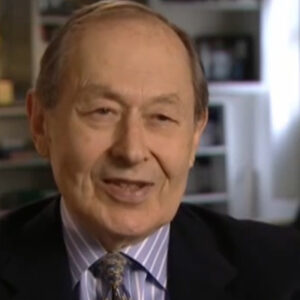Speaker How there’s always a sound. All right. Beautiful.
Speaker OK. Right. This is such a great idea, Walter. But this is such a great. I agree.
Speaker Tell me something certainly different.
Speaker Tell me a little bit about who are the people when you were growing up, who did you admire? Who were your heroes?
Speaker Oh, golly. You know, most of my heroes you would know or recognize, they were the local heroes on the newspapers on which our work and the press service bureaus in which I worked. I, I, I, of course, read the great journalists and their books and that sort of thing. But but I was too remote from them to really think of them as high heroes. I could follow through life. I never expected to meet them. I never expected to be on a day end of things like a career level with them. But they were the ones I could look to every day and their performance on the job as my guide. Were the people in the bureau is where I worked and the newspapers were in word there.
Speaker I had a I had a police reporter and the Houston press was one of the most amazing men I ever heard dictate a story he scarcely ever got to the typewriter, predicted stories from the police station and get them into solid beat to chronicled to the first edition. And the I must say that he also had a very naughty tone and he would when he dictated a story and would spell the name and give each letter a ID, he made up some pretty terrible little stories at the time. And were there were shocking. But I must say to a young man and to most of the other people on the police run, they were very amusing. But he also was a superb, superb reporter, one and one who manufactured stories not to not wrongfully, but but told a story around the action that had taken place and went deep into the sidelights, the kind of characters who were involved. And he looked into their life stories, although they were simply criminals off the streets. But he made them come alive. An incredible reporter.
Speaker Tell me something. If you were writing a profile about yourself in The New Yorker, I. I wouldn’t let myself in. But tell me, where would your story begin? Where would you start your story?
Speaker Well, I’m trying to think how I started my book. My most recent book and I read my most recent book being my only book, the. How would I start it again?
Speaker Did you start a story about yourself, let’s say, in The New Yorker where you don’t have a whole book to tell your story? Where would you pick up? Where would you start telling your story?
Speaker I think I’d probably. I think I’d probably start telling it. On my assignment as a war correspondent shortly after Pearl Harbor, when the United Press named me the war correspondent to join the Navy and to go start immediately on the convoys to England that were so important. They were the success of getting our ships through past the German submarine. It was essential to the to the survival of the British islands. And it was a major story of the time. And I think I would pick it up right there where I boarded the battleship Texas on on the way to the British Isles as a war correspondent, a patch on my leg, my arm that said chorus war correspondent. I’ve never felt more important in my life and happier in my life than I was at that moment, although considerably aware of the danger of going to sea and a Navy festered by German submarines.
Speaker I wanted to also pick up on our interview last week where you talked about a boy’s life. You know, the magazine, the boys, the boys magazine, you know, this thing is it’s not good.
Speaker It’s the only way you can stand behind me. So you don’t block his view because he’s struggling. I see what he’s doing.
Speaker Yeah, I would do that for me to continue. Yes. Now, you were telling me last week about this magazine you read called The Boy’s Life A Boy’s Life. Has your life been an adventure, like one of the stories you read in a boy’s life?
Speaker Well, whether the stories in boy’s life, they did a regular piece every month or so on one business or profession or another, the whole idea was to give young boys some hint of a profession they might wish to follow. And they were all most of them were, of course, rather glamorous. They don’t hold them up a bit.
Speaker But the two that appealed to me were mining engineers, of all things. And perhaps there was some semblance to these to being a foreign correspondent. And I I thought of both of those. But then I began reading a little bit more about foreign correspondents, and I got really hooked with that. And I never, never looked back for what I wanted to be. That was at that time I was about 12 years old.
Speaker But has your life been a little bit like what they described in the boy’s life as a war correspondent?
Speaker As a matter of fact, yes. I never really thought necessarily that I’d be a war correspondent. I just knew that newspapering and was my my reporter or my choice. The war correspondent thing, of course, came along because war came along and such a gulf to Seoul. And I was fortunate enough to be picked almost immediately after Pearl Harbour by the United Press to go overseas. So I had I had dropped in my lap, as it were, because of terrible circumstances. The resolution of my dream.
Speaker Now, if you hadn’t become a journalist, what would you have become an astronaut?
Speaker Well, that I’d be pretty old for that.
Speaker By the time they came along, I think I think an aviator might very possibly been what I would like to be. As a matter of fact, I tried at the early stages of the war to join the Air Force. I tried both the Navy and the and the Army Air Corps. And unfortunately, I was colorblind, couldn’t I? I busted out and bought them right at the beginning. A great disappointment. I still would like to spend some time flying. I didn’t take flying lessons, but I never did anything really with it because of the color line. In those days, you they they gave you a colored flash, a flash machine and let you know when you could come in for a landing or not at the airports and you had to be able to tell red from green. And it turned out from white as well. I had a teacher who is who gave me flying lessons and he was he said he didn’t think that I probably really had that much trouble with the with color blindness. So he set up at the Kansas City airport, the guys who flashed the lights to give me some test number to test lights.
Speaker And we I was making my landing and he would they would show a red light and maybe a green light. And then I thought a red light again and then the green light.
Speaker And I was calling them off and I thought, boy, I’m doing this with no problem. And I did that for about 10 lights flashing of a couple of passes at the airport. And. And my tutor said, oh, I’m sorry, I can’t give you that license after all. And it turned out that they cheated on me. They didn’t tell me there’s a white light. And I could tell a red dart I had a green light, the light plane. But then there’s also a white light in there that they didn’t tell me was there. And so I didn’t I missed it. I didn’t call it drains the whites. Well, thank God. When I was raised in automobiles on some of the major big races they had, they had medical checks for the drivers and they had a big board colors. And I was sure that I was going to flunk one of those one day. I still thought to write up to the very end of my experience driving, but I had a neat little trick. Kind of a mean trick. The that the doctors were all volunteers from the neighborhood or they weren’t terribly skilled or they were skilled, I guess certain. But they were kind of impressed by the fact they were doing this as a medical test for the race drivers. And I found that when I came in, they identified me. I could talk to them and talk to their business and my business and so forth. And I talked to them so much, they just forget it. Forget to give me the color blind to us. So I. I never felt that I was endangering anybody on a on a race course. Perhaps other than myself a bit, because I figured there were only three flags used on the course and that was a green and a red and a black black man. Don’t to go into your your pit red danger, slow down. And the green was everything’s clear. Now I beat that racket by knowing that the flag wavers on the corners rather than if there was a danger. They were they were throwing a red flag boy like that and trying to be sure you saw it and stop. And if there was a green light, they kind of lackadaisically held it off to the side and say it was black, they black.
Speaker I can tell they just held it out so that you saw it alone, not the other cars, which meant you were to go into your your pit. So I got by with it for several years, though, and I’ve got to pull up. Can you just take a quick pause?
Speaker Now, I want to go back to you’ve seen a lot of reporting on key moments of the 20th century. What was the most exciting assignment apart for more reporting on the moon?
Speaker What was the most exciting story apart from your work for the war?
Speaker Well, I suppose I’m sure that the most exciting was covering the political conventions. I like that very much. I like covering politics. I like being involved in Washington, where I’ve covered Congress as others did. But the political conventions were highlights in the in the first days of television. The first televised conventions were great fun, the first year of the two parties and with terrible television. And then this is four years later. The next set there after the I feel that the political parties took all of the interest out of the political conventions. They really aren’t today debated debating the delegates on the public policy of the party, their platform.
Speaker They didn’t they don’t debate that in the open any longer. That used to be debated on the floor and it was fascinating. There was shouting and screaming and hollering and delegate and demonstrations on the floor.
Speaker But today, after the first two sets of conventions, both parties decided that they wanted to clean up their act and not let people see that they had any arguments, not let them see shouting each other. Instead, they wanted decorum and the impression that all was smooth in the party and the parties. Ever since then, their conventions are meaningless as far as I’m concerned. I have thought I have thought really that the the networks shouldn’t have given them the time that they gave over many years. They could have cut the time considerably. They were just spending a week in paid advertising for the party whose convention was being covered.
Speaker But they got pretty rough. I remember seeing some footage where Dan Rather was being pushed around and you were trying to from the control booth where you were broadcasting, you were trying to figure out what was happening down there. So it got pretty rough. I mean, did you always feel very responsible for the reporters working under you?
Speaker Well, yes, of course. They really weren’t working under me. I was the anchor man, but the management of the news department were more in charge of them. And I wouldn’t have I wouldn’t have been the one that said you ought to take this person off the floor, put them on the floor. They did that. The management and I I worked with them, of course, all of them. Some of them, I thought, perform better than the others. Naturally, some of them thought less of me perhaps than than I thought I deserved. But we all got along and and it was always very exciting covering the floor affairs in earnest early.
Speaker Conventions were always very cool. But one time when you’re when Dan Rather and a couple of the other reporters were being pushed around down in the convention, you got pretty tough.
Speaker I was offended. That was a Chicago convention. What was forty?
Speaker I think that that, of course, was a notorious convention for the street demonstrations, the young people’s demonstrations at the time. And that was repeated to some degree on the floor of the convention and also at the Chicago leaders. Mayor and his party were in tents on making the convention appear as calm as possible. And in doing so, they put a lot of police on the convention floor. And whenever anybody demonstrated, they would try to escort them out. When they tried to escort the the news people out, of course, news people complained. I mean, it was all right to cover that convention no matter what rip Mayor Daley thought about it. So we got. Uptight when the cops tried to take our reporters out of the hole. They they they accidentally not rather down. He was. He tripped over them, actually. They didn’t really know looking down. But it was it was an unseemly situation anyway. And I’m afraid that I motored a little on that time. There was a.
Speaker Anyway, I just wondered, do we have. Because I want to talk about your interest in the moon and landing on the moon. You’re a journalism. And we have speaking.
Speaker Mr. Cronkite, I’d like to talk about Betsy. There’s this wonderful, wonderful story you tell in your book about visiting with Iva Maxwell when she showed her Bible and that you discovered that you both had been in the Sunday school. You had been on the same Sunday school class. I wonder if you could tell me a little bit about that story. I tell that story quickly and and the whole destiny. Did you feel that you were destined to meet Betsy?
Speaker Well, I don’t know that I was destined to, but I’m certainly whatever the destiny was. I’m so grateful that it happened. I met her at a radio station where we both worked in Kansas City. She had just gotten out of the University of Missouri, as in journalism, but in advertising and that kind of thing. But journalism as well. And she she was one of the most beautiful people I ever saw in my life. I saw for the first time as she came to try to get a job in the station where I already was, just had just begun working. And I saw it coming down the halls of that building. And, my gosh, I fell in love before I ever knew her name or what she did or whether I’d ever see her again in life. I was frightened I wouldn’t see her again. But as a matter of fact, she got the job and came to work the next week. And I, I was somehow or other for the first time in my life, I was paralyzed and wanting to meet a lady or a young woman. I died. She worked there a week before I could get around, introduce myself. In fact, I still hadn’t done that. I kept saying, I’ve got to introduce myself. But I for some reason or other, I just thought she was so, so precious that I didn’t dare make any miss move. And it turned out that suddenly we were both called into the studio. Oh, this station did live commercials in those days long before they had the read the the what you call the. Let me take that.
Speaker Can you say her name also? You need to say her name. Betsy, when you talk about.
Speaker Well, anyway, I, I hadn’t I hadn’t met her. She’d been there a week. I was somehow or other too shy. I’ve never been shy before and before females in my life. But somehow or other, I was with her with Betsey on this particular day. We both found ourselves in the studio about to do a live commercial.
Speaker We did not have the recorded commercials in those days. Very early radio. And here we were to do a commercial.
Speaker And the way they did that was the commercials have been written and they get whoever was waiting in the waiting room of a studio or one of the workers and call them in and they’d say, you is this she?
Speaker They did the Betsy, you’re a woman one. And me, your man won, OK. Let’s get ready. No rehearsal. And I had my coffee. And sure enough, the announcer said a scene in downtown Kansas City. And I said, Hello, Angel.
Speaker What’s what. What do I say? Hello. Hello, Angel. What? Hey, let me take this. I said the. This is the coffee. Let me pick this up again.
Speaker I had the part to play a man, one, she was Betsi was woman one, and the announcer made the overall opening.
Speaker And he said, I seen in downtown Kansas City, man. I said, Hello, Angel. What happened to you? Dropped from woman. I’m no angel. Man, you look like an angel woman. That’s because I use Richard Hudnut Cosmetics.
Speaker That was the whole thing. And now we’re we’re through and the lights went off and I doubled up my coffee and threw it on for us. And who in the world writes that joke? And she said, I did well. Boy, I thought my life had ended right there. But obviously I had to try to make it up to her. So I invited her to lunch that very day.
Speaker And I’m happy to say we never looked back. The two of us wait here. We. We courted around Kansas City. You work. She lived at home then. And I had many good meals out at her house.
Speaker I was a bachelor in town. And eventually I went off to a united press and left Kansas City. But I kept. Oh, Major, come here.
Speaker Let her go. And I felt that.
Speaker I felt a continual letter exchange keeping up with her, and indeed, I got back to Kansas City with United Press. Within about a year and a half. And the romance was renewed.
Speaker And within a couple of years, we were married. And she she died this year. And what about our sixty fifth wedding anniversary?
Speaker Did she share your love for sailing?
Speaker Yes. I don’t think she really did. But she was a good scout about it. There was one thing about it, the rather amazing in this whole story. My mother was living in Kansas City and she went to visit Betsey’s mother, who is doing a lot of sewing.
Speaker She did some very beautiful SOI for Betsey’s clothing and of cover for the Bible for the wedding we were about to have.
Speaker And she handed my mother his mother handed her a little tiny Bible that had a very fancy cover. She’d just embroidered to it. And my mother was supposed to be drawing the embroidery, but she opened up the book and she said, oh, my goodness, Water has a book just like this. And it turned out that Betsy and I had been in Sunday school class together. She wasn’t nearly as pretty. Then I probably wasn’t as handsome as we were. And I think we’re five or six years old. But it turned out that we had known each other all those years. And so we made it stick. Stick.
Speaker One last question. How what do you consider what is the reason that you think your marriage lasted so long? What is in today’s world where people once they get into middle age, they sort of swap husbands, wives? How did you both.
Speaker I don’t have any doubt why our wedding our marriage lasted as long and as happy as well as it was. And that’s why we both had a great sense of humor. And I think this is very important. She was very good with the quick line and I was very good with a quick laugh when she when she delivered it together, almost nothing came between us that we didn’t settle with a joke. I think it’s a good lesson for people. I don’t think everybody can. You can have a sense of humor. I think it’s a blessing to have one in particular when two people both have sense of humor. They can get through an awful lot that otherwise might have entangled their marriage.

